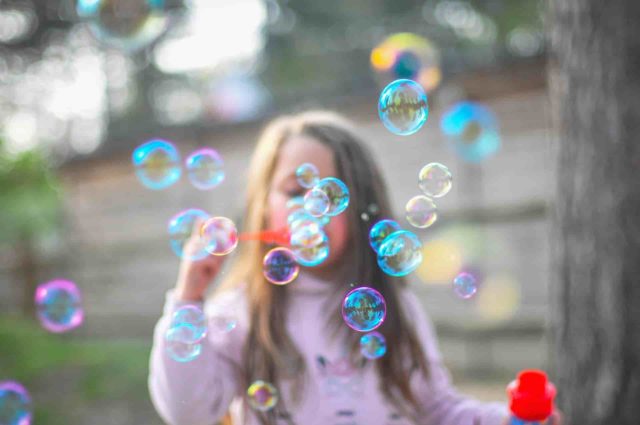Providing children with opportunities to take part in fantasy play can potentially enhance their creativity — as found in research undertaken by the British Psychological Society. The study, undertaken by Dr. Louise Bunce and team, involved 70 children aged four to eight. The researchers sought to assess the extent to which kids’ fantasy play involved mirroring real life (for instance, pretending to be a teacher or a doctor), or fantastical events (such as playing with a fairy or attending a school for wizards).
Children also completed creativity tasks ranging from thinking up as many ways as they could to move between two spots in a room to thinking of as many things as possible in a specific color. They were also asked to draw a real and pretend person, with judges assessing the creativity level of their work.
Fantastical Play and the Imagination
The results showed that children who engaged in more fantastical play also had higher creativity scores for all the tasks. The researchers stated that utilizing unrealistic scenarios is linked to creative thinking, but the direction of this relationship is still a mystery. That is, it could be that taking part in fantasy play could boost creativity, but it can also work the other way around.
In other words, children who are already more creative can be attracted to imaginative play. At any rate, said the researchers, the results provide encouraging evidence for teachers wishing to encourage children to embrace fantasy as a means to boost their creative thinking skills.
Practical Applications for Parents and Teachers
There are many ways to introduce fantasy into play. One is through the use of fantastical games and toys kids are naturally attracted to. These can range from characters of figures from sci-fi works like Star Wars, right through to playing with ‘virtual fairies’, making magical potions in a cauldron, or using kids’ cameras to crate creative videos with a plethora of backgrounds. Teachers can incorporate some of these games in art classes as well as encourage this type of play during break time.
Parents can also do their share. During the festive season, ideal gifts that can foster fantasy include outdoor pizza ovens (where everyone can make creative pizzas in flavors like chocolate and marshmallow), DIY Christmas gifts, and sets for fantasy scrapbooking, sewing projects, and jewelry making.
The Personal Benefits of Fantasy
Teachers can also use imaginative storytelling and writing to immerse children in new worlds and to question their own. As stated by The Guardian’s Cornelia Funke, fantasy storybooks by writers such as C.S. Lewis and Tolkien encourage readers to answer ‘big questions’ such as ‘What is our aim in life?’ ‘What is the nature of good?’ or ‘Where do we come from and where are we going?’. Funke notes that fantasy is not merely empty escapism. All change, she argues, commences with fantasy and the imagination because “we won’t try to change this world unless we are able to imagine another reality.”
Stories can help children comprehend the basics of philosophy, culture, and beliefs and can teach them to be observant and analyze what they see. It can also help them face their fears and find inner strength, as so many characters (Frodo from The Lord of the Rings saga arguably being the ultimate exponent of courage) have done.
Studies have shown that there is a strong link between fantasy play and creativity. Parents and teachers can work to strengthen this link by providing children with toys and activities that allow kids to enter new worlds. Doing so can benefit them in additional ways, helping them understand more about themselves and the many beliefs and philosophies they can choose to make them feel more courageous in their daily lives.

